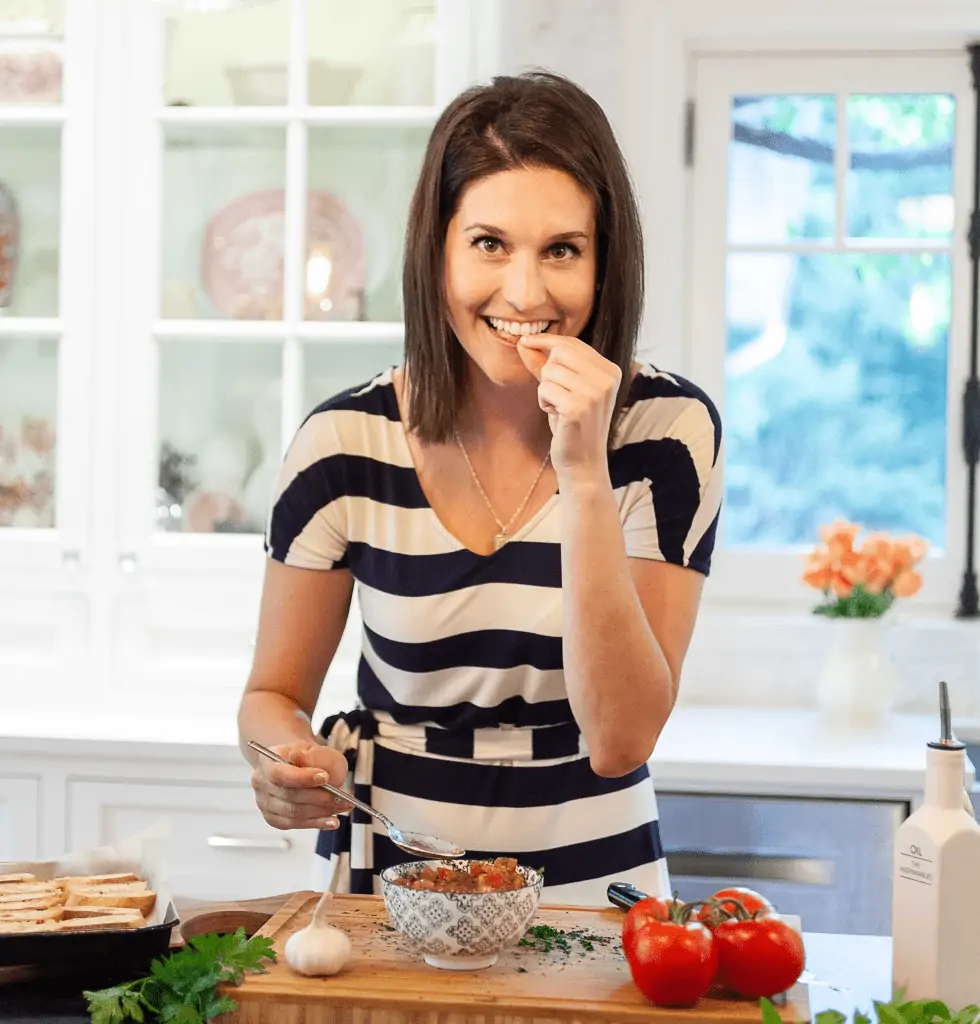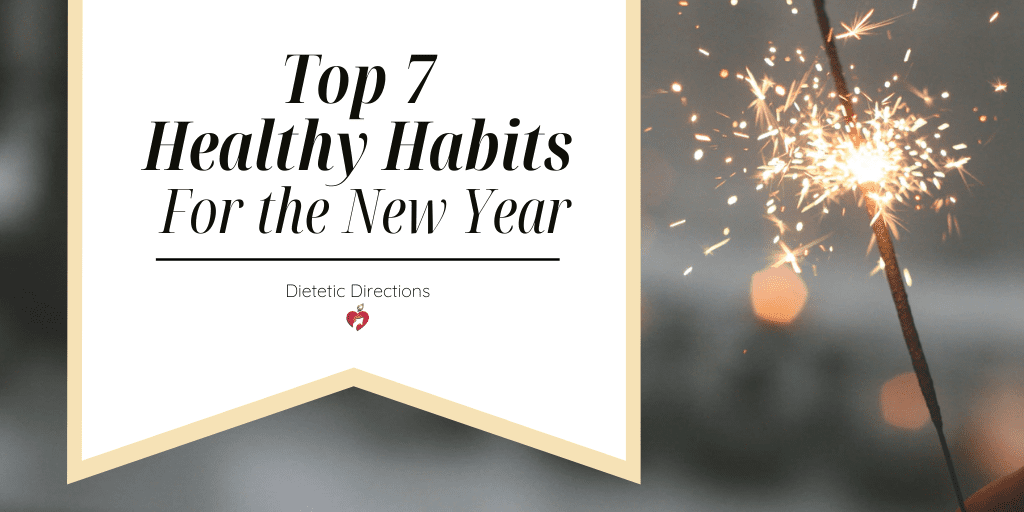
Top 7 Healthy Habits
For the New Year
It’s a New Year. Let’s kick it off by implementing new healthy habits or reinvigorated lifestyle routines. As a result, we can focus on ourselves (mental and physical well-being) and start the New Year off freshly. However, keep in mind that we are coming out of a year that overhauled our lives in the face of an emerging global pandemic. This has brought different challenges (i.e. stress eating, budget restrictions, emotional stressors). But it has also yielded distinctive opportunities (i.e. commuting less, enjoying extra down time or getting outdoors more). Nevertheless, with the turn of the calendar year, let’s refocus our attention on keeping the healthy habits that will set ourselves up for success for long-term behaviour change.

In today’s post, I will be summarizing 7 Healthy Habits to improve your overall nutrition and lifestyle routines for the coming year. These items are dietitian-approved ways to feel reinvigorated and tend to your health and emotional well-being.

Let’s get the countdown started!
3, 2, 1 – Happy Healthy
Habit Changes!
Top 7 Healthy Habits:
1. Cook More
Did you know that commuting time is related to less time spent preparing food at home? Cooking at home is an impressive healthy habit that puts you in the driver’s seat of your nutrition. In fact, research finds that meals cooked at home tend to be lower in salt, fat and calories. People who cook more at home are also more likely to consume more fruits, vegetables, whole grains and fish. Without a doubt, home-cooking can transform our health – especially when making wholesome items consistently.
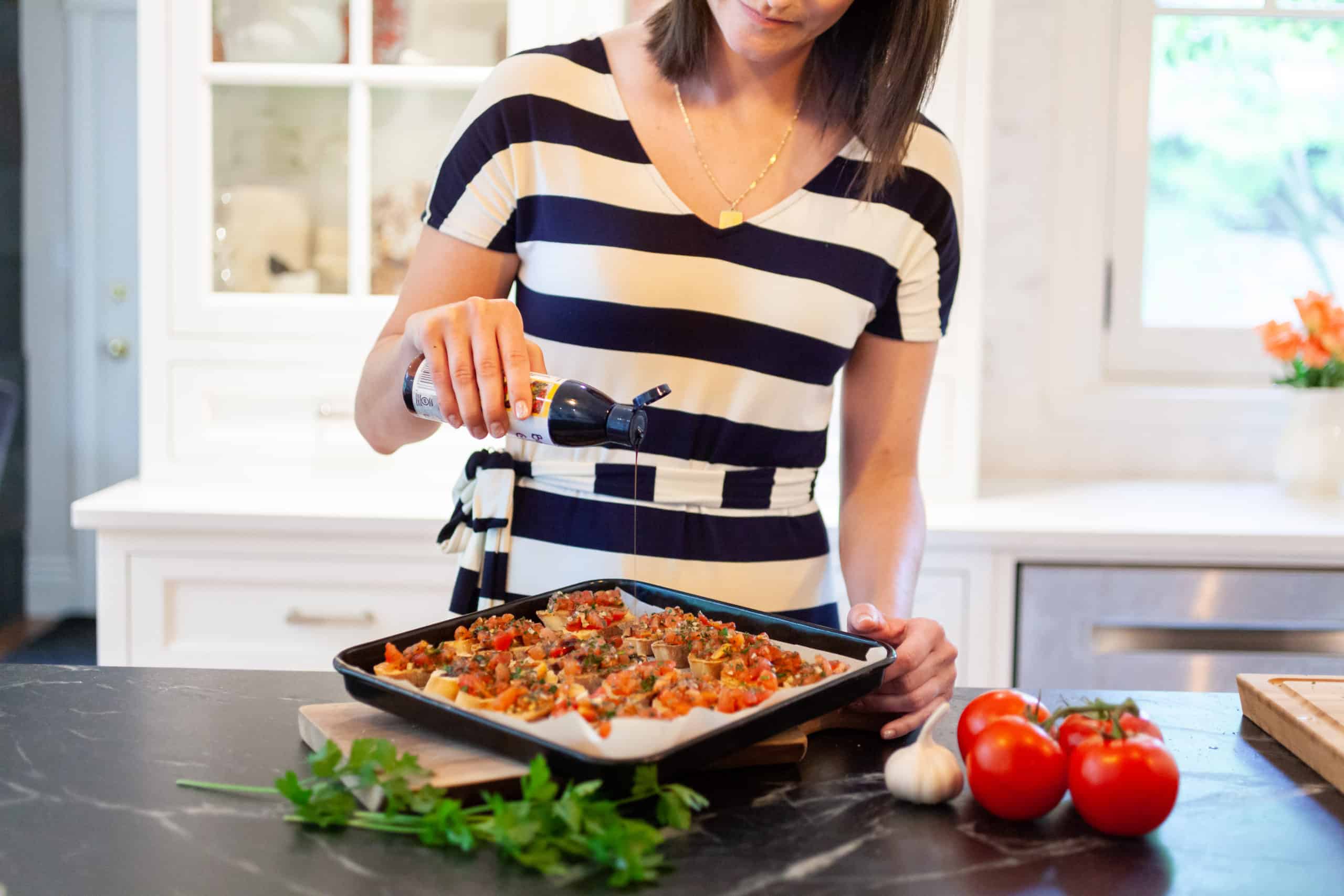
Building Food Skills
Another perk of the healthy habit of cooking more is that it supports food skills, or a set of skills necessary to prepare safe, nutritious and culturally–acceptable meals for members of one’s household. This could mean trying bread-making, welcoming your child into the kitchen, following a step-by-step recipe or making a new dinner using a meal kit. Additionally, children who help in the kitchen are more likely to try new foods. They might also have improved nutrition intake, have a positive food relationship and increased confidence to prepare meals/snacks as they get older.
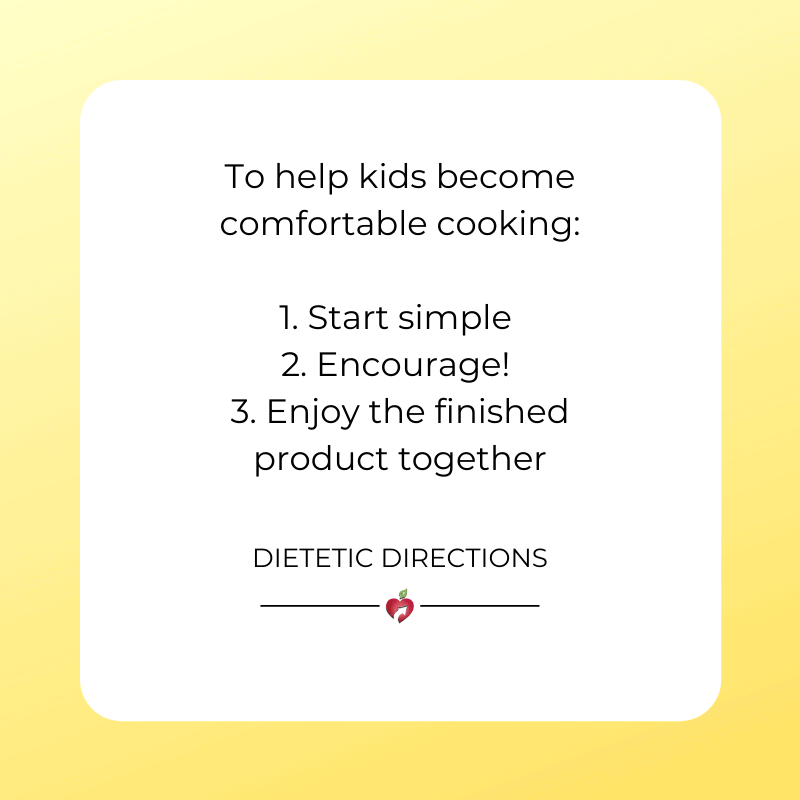
Habit Change Tip: Start where you are at today and decide if you want to cook more this year. This is important because it is a choice and we want to state our intention. You might choose to increase your cooking frequency by one additional night a week or perhaps you want to cook differently – maybe experiment with Mediterranean recipes or 5-ingredient meals to make with the kids. Be sure to make it a realistic goal that can be achieved consistently before advancing the target – this helps with sustainable habit change.
2. Get Organized – Freezer Inventory
Let’s say no to panic buying and yes to getting our kitchen organized and using up what we have on hand. During the pandemic, many have been searching for productive ways to spend their time. The healthy habit of getting your kitchen organized will have you doing a simple inventory (I recommend starting with your freezer since there are many items lurking!) and then posting your inventory sheet so you know what you have on hand for future meals.
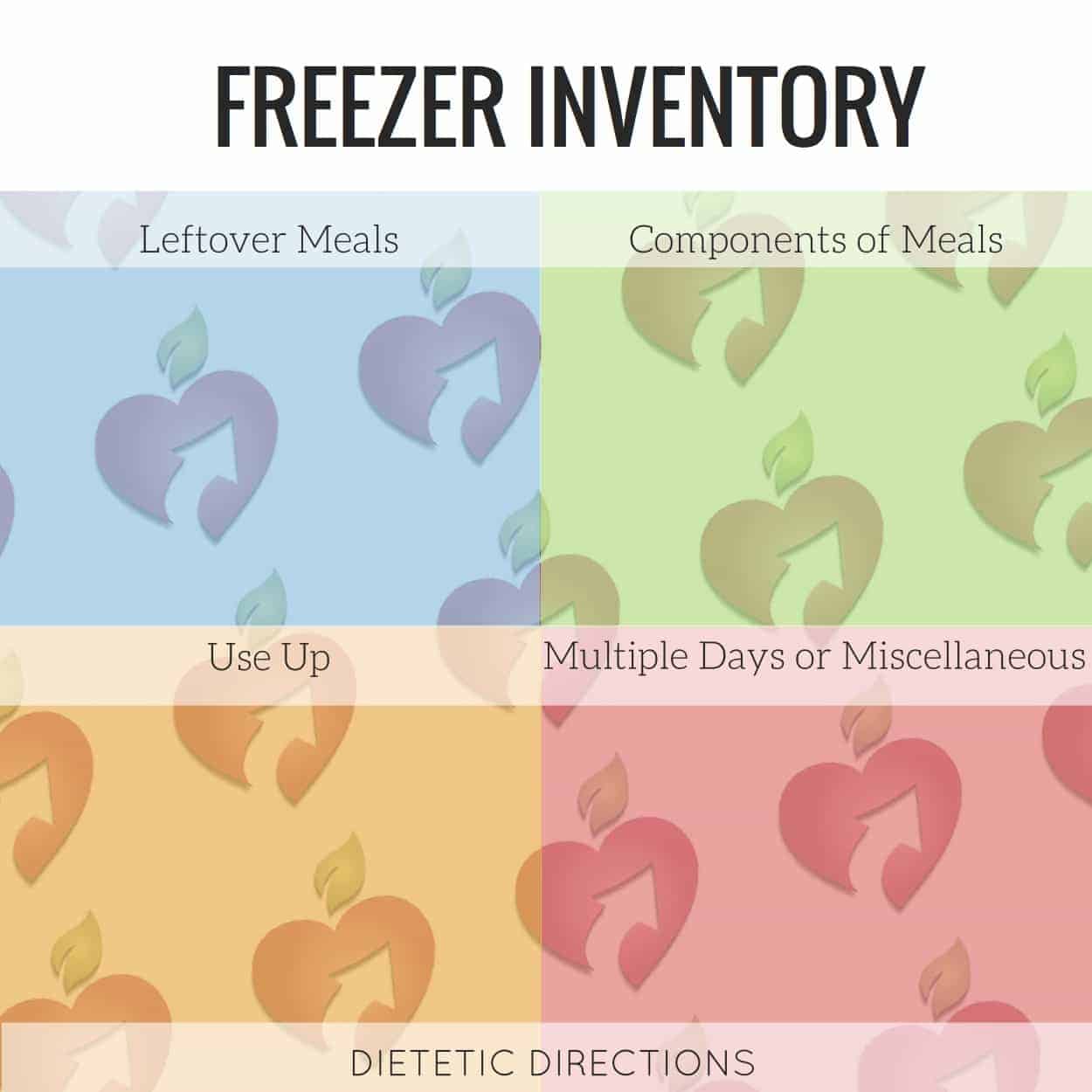
Here is my 3-Step Guide for How to do a Freezer inventory. Many clients comment how doing a freezer inventory every few months helps them plan their meals and use up items with less stress! Additionally, this healthy habit will save money by using what you have before buying new items.
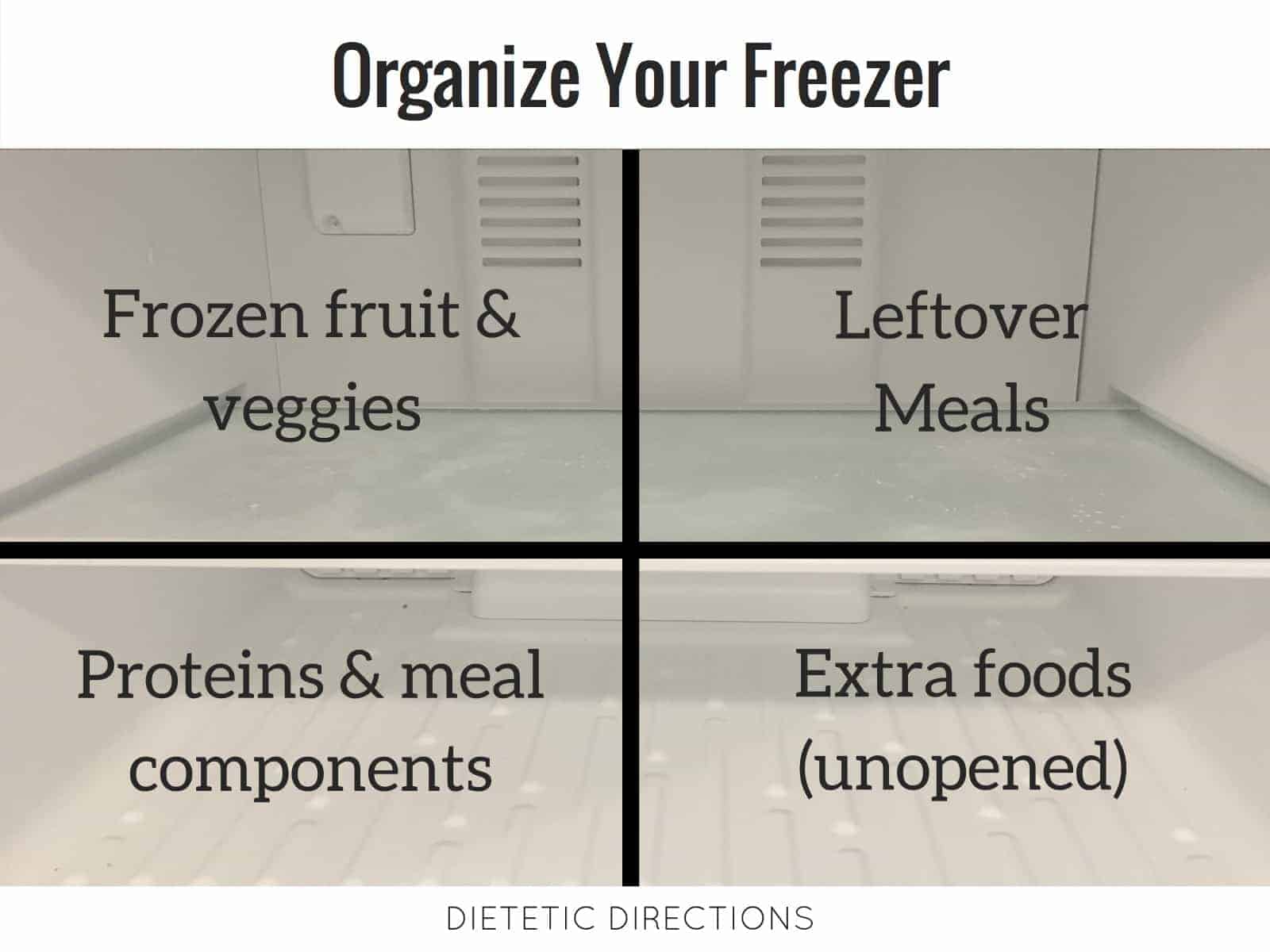
Getting Organized
When you are done with your freezer, you could check the foods stocked up in your pantry and organize it in a fashion that supports the F.I.F.O (first in first out) method. You could also write down corresponding meal ideas to use up ingredients. For example, I have lentils in my pantry, why not make a Greek Lentil Salad or perhaps have a Taco night and add the lentils to ground meat or veggie ground? If I have canned tomatoes why not prepare a tomato sauce and make another batch for the freezer?
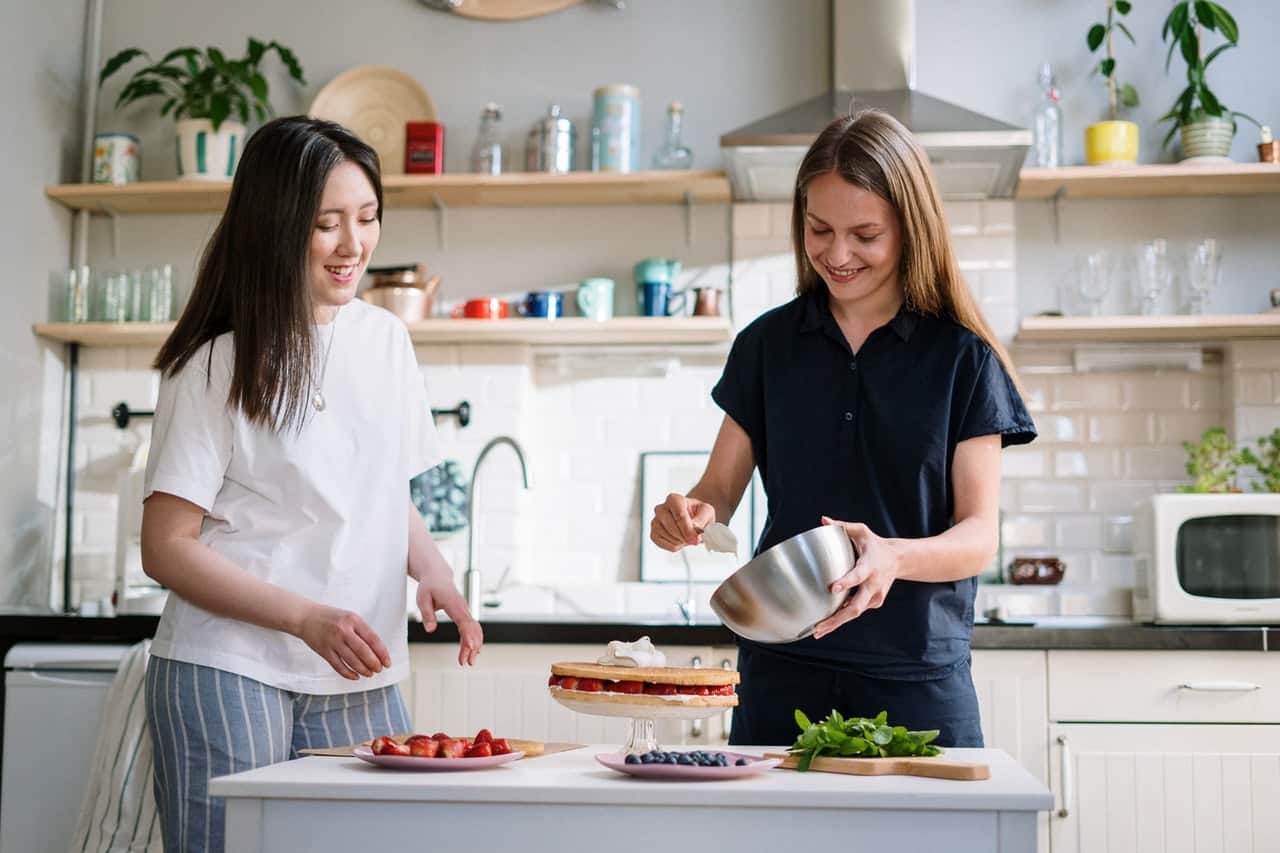
Finally, building awareness for foods we have at home helps us decrease food waste – another benefit of this healthy habit. We will throw out less food when we know to use it up before it goes bad! Here’s an article on reducing food waste if you need more ideas!
Habit Making: Set a time on a weekend to go through your freezer and get yourself organized!
Be sure to tag Dietetic Directions on social media and show us your work!
3. Save on your Food Bill
Without a doubt, the pandemic has impacted our wallets. Additionally, food prices are on the rise again which means many of us have to save where we can. As mentioned above, cooking at home can help us save along with organizing our kitchen. However, some healthy-spending habits can save you money at the grocery store. For example, get into the habit of buying mainly sale items, before you shop try basic meal planning, or explore meatless proteins like beans, lentils, chickpeas, eggs and tofu. For the full breakdown, see the post, 7 Ways to Save on Groceries (& Still Eat Healthy).

The Good News: Stretching our food dollar can be done with inexpensive ingredients that create cheap, healthy meals. Check out this post, where I share $1 or $2 a serving meals, using five budget-friendly foods.
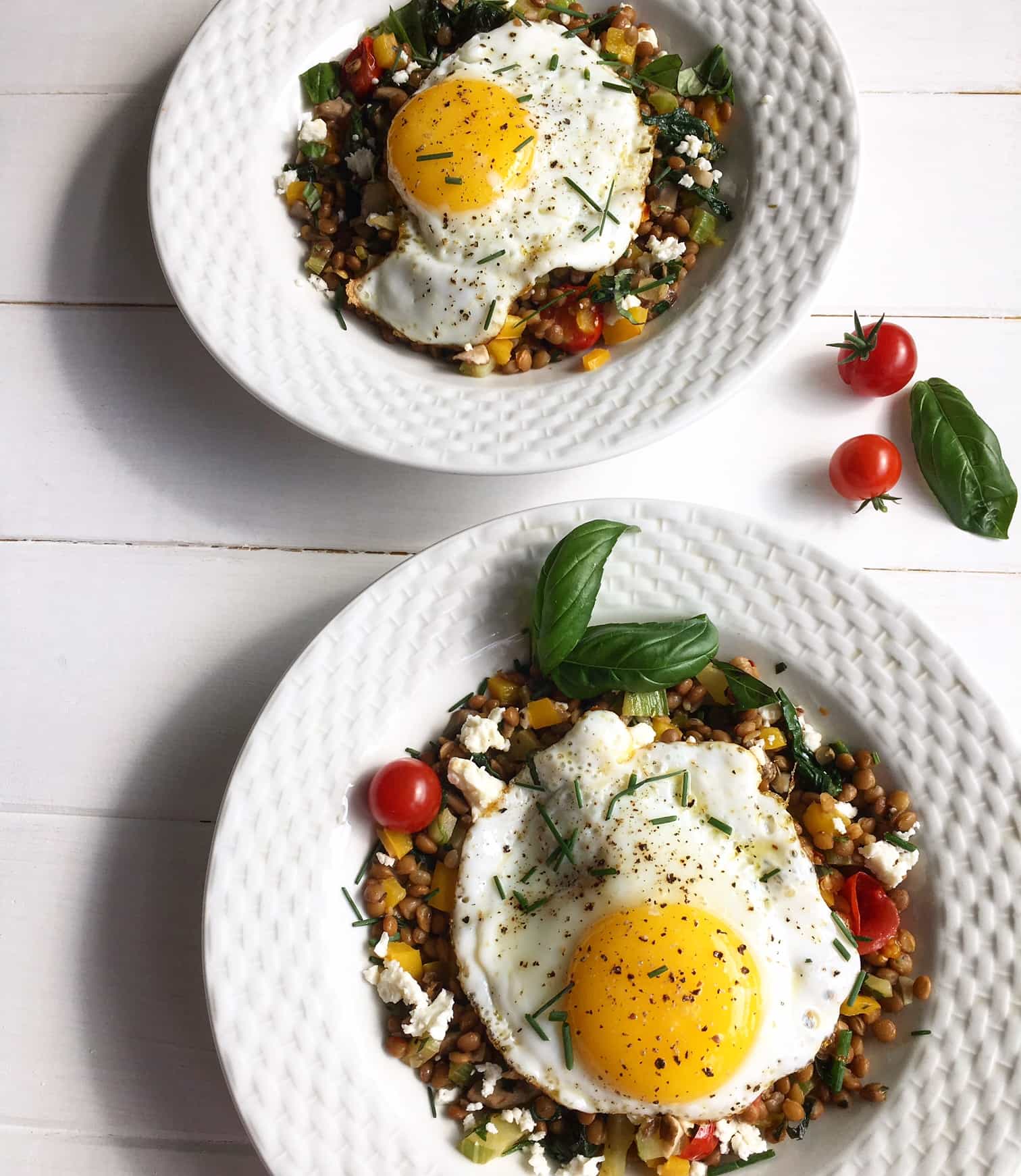
This Breakfast Lentils with Garlic and Egg recipe is a delicious dish that is inexpensive and healthy!
4. Move your Body!
With gyms closed, many are finding ways to stay active while confined to our homes, parks or neighbourhoods to walk in. To create a new healthy habit, try using a step counter like FitBit, Apple Watch or pedometers. These can help in setting a step or physical activity target and bringing awareness to your daily lifestyle. Home workouts on YouTube or apps like Peloton or Nike are motivating tons of people to get moving! After all, most of us with desk jobs are quite sedentary so we have to be intentional to get more movement in.

Research shows that sitting for long periods raises the risk for heart disease, diabetes, cancer and premature death. A new healthy habit could mean having an alert on your computer or watch to encourage you to stand up after long periods of sitting.
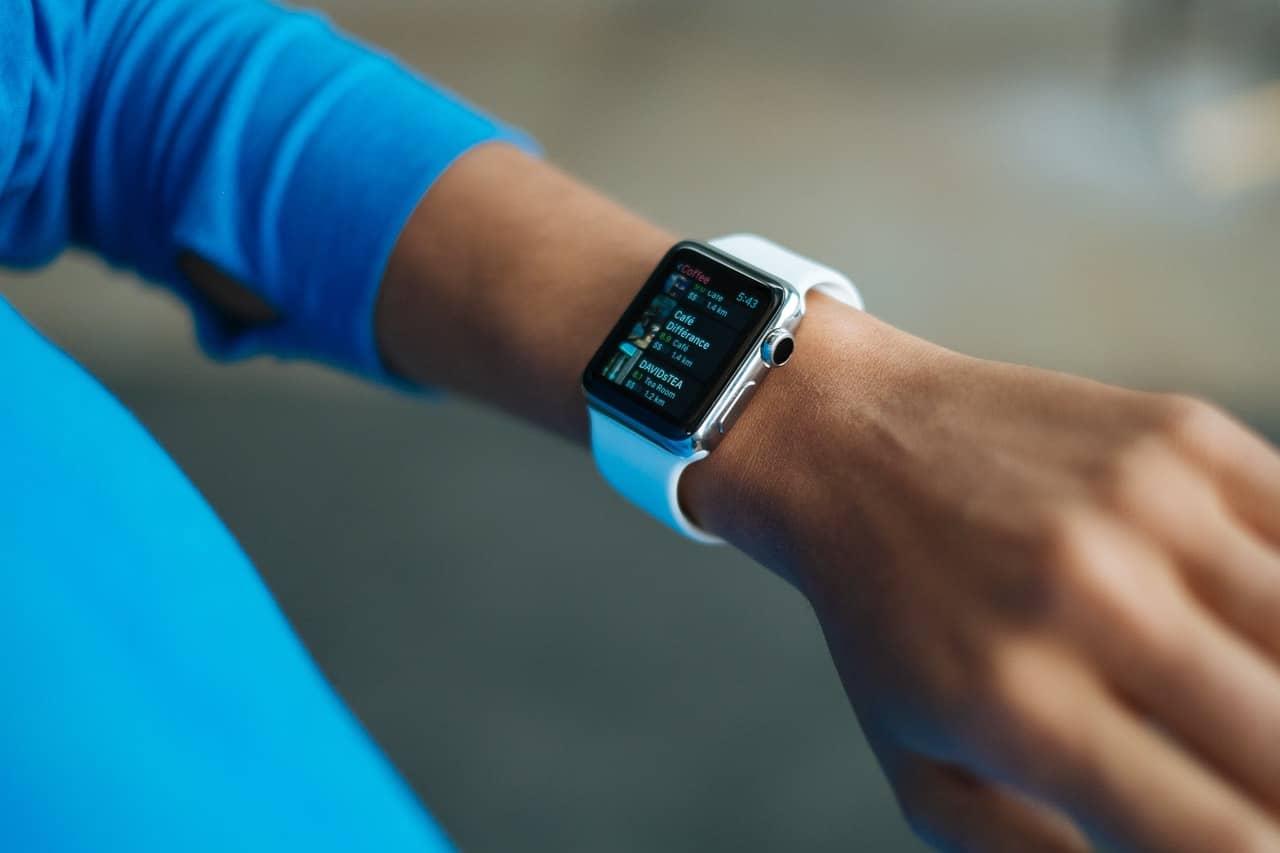
Action Time: Ask yourself if you want to be more active this year? If yes, brainstorm ways to get more movement into your day. Does this mean going for a daily walk in the park? Taking a 20-minute virtual yoga class for a morning or evening stretch? Or perhaps joining an online boot camp for personal training assistance? Remember: Start where you are at today with a realistic (and achievable) goal! More importantly, be consistent and increase from there, rather than start gang-busters and last for only a few days or weeks.

Reality Check:
Getting started is the key to progress. Let’s all ditch the idea of perfection. One step at a time. For healthy habits success, think about your dietary and lifestyle habit changes like climbing a ladder – one rung at a time in order to get to the top. You may need to silence your inner critic and avoid the common desire to compare yourself to others.

5. Batch-Cooking
Meal prep or batch-cooking is another healthy habit you’ll want to create (if you haven’t already) in the New Year. After all, it’s easier to cook larger quantities than it is to cook more frequently in the busy week. Once the ingredients are out it does not take twice as much time to cook twice as much. Freezing batches of chili in the freezer, tomato sauce, meatballs, or soup can all make your future meals that much easier.
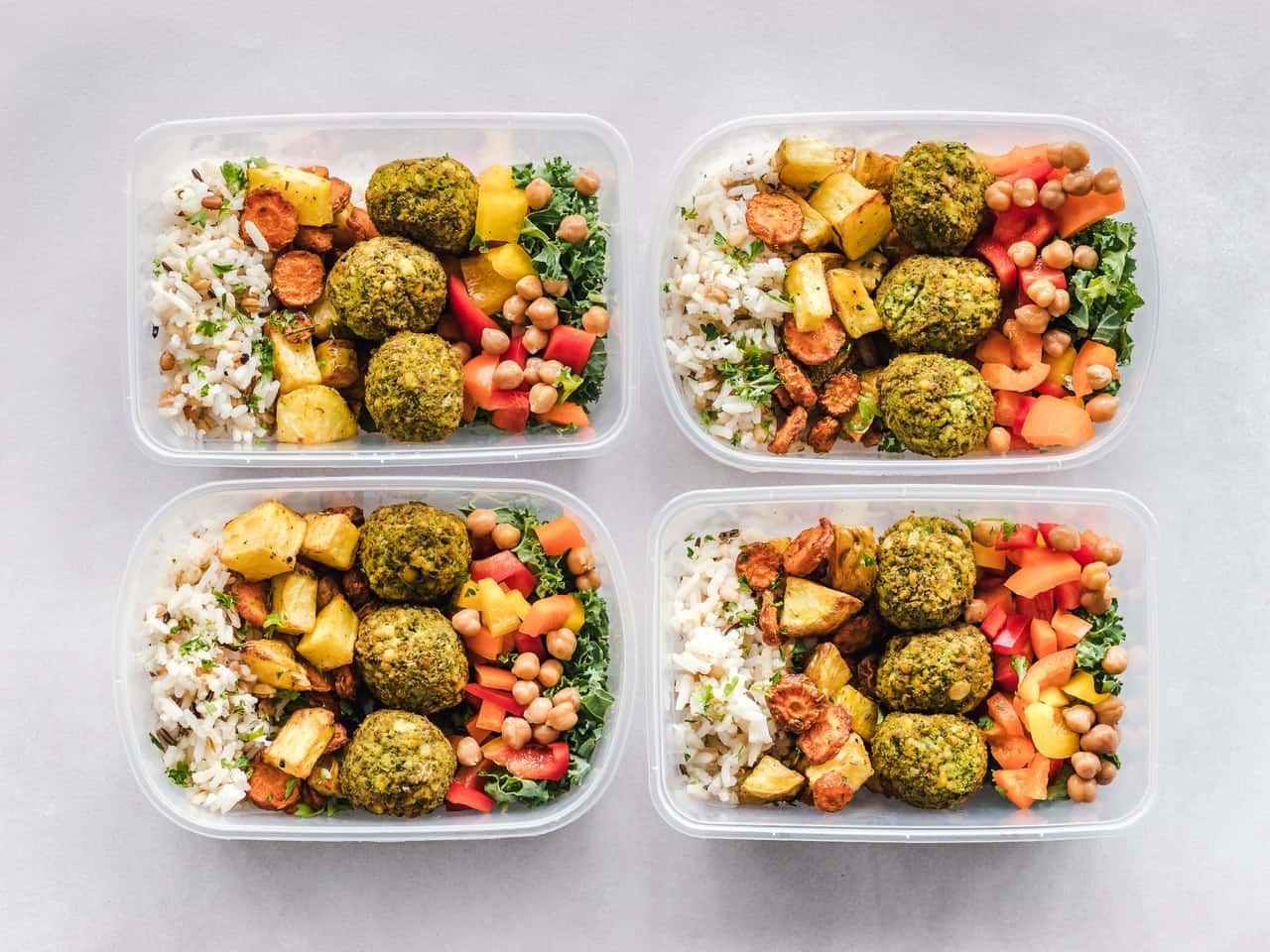
Try Meal Exchanges!
Another healthy habit option could be meal exchanges, meaning you make extras and exchange these for the leftovers from another household. This allows for trying new foods and less cooking time. For example, if making lasagna, why not make an extra for a friend’s family. Then they might be making pizzas for dinner, so they send over leftovers from their homemade pizza night. Meal exchange system in place.
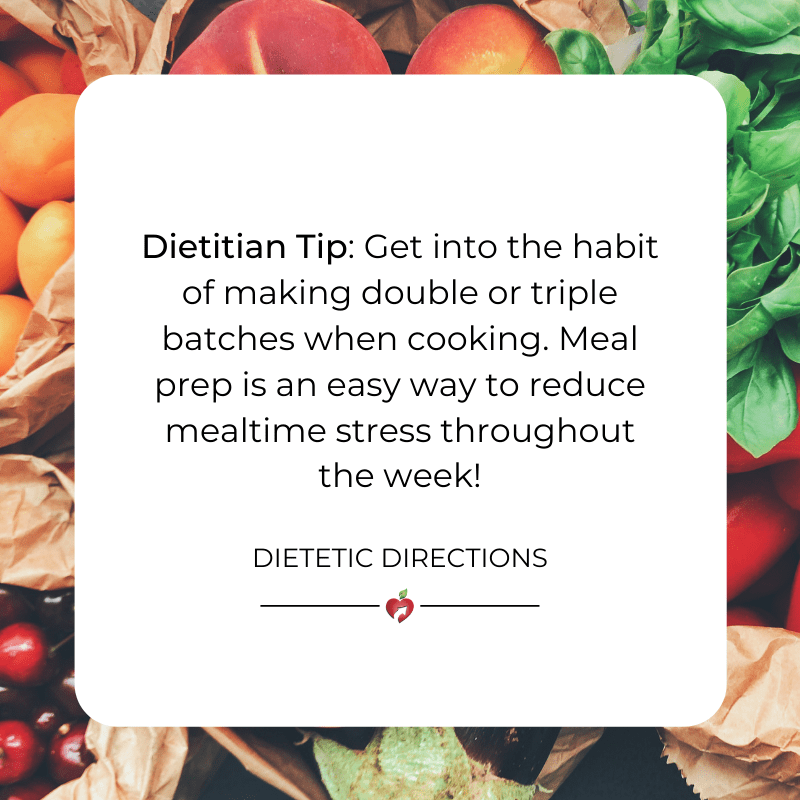
Healthy Habit Tip: Get into the routine of making DOUBLE (or triple) batches whenever you cook. When serving yourself your dinner portion, try portioning into a lunch container right away. This can help prevent you from eating the extra leftovers at dinner.
6. Make it Fun: Virtual Cooking & Meal Themes
As adults, we don’t play or have enough fun on a regular basis. Therefore, your healthy habit for the New Year is to spark your inner child and make activities exciting again! If you want to start a new healthy habit, like cooking more, emphasize ways to make it fun. How about hosting a virtual cooking night with a friends or family member. This can motivate you to cook as well as socialize, and there’s opportunity to ask questions and learn as you go.
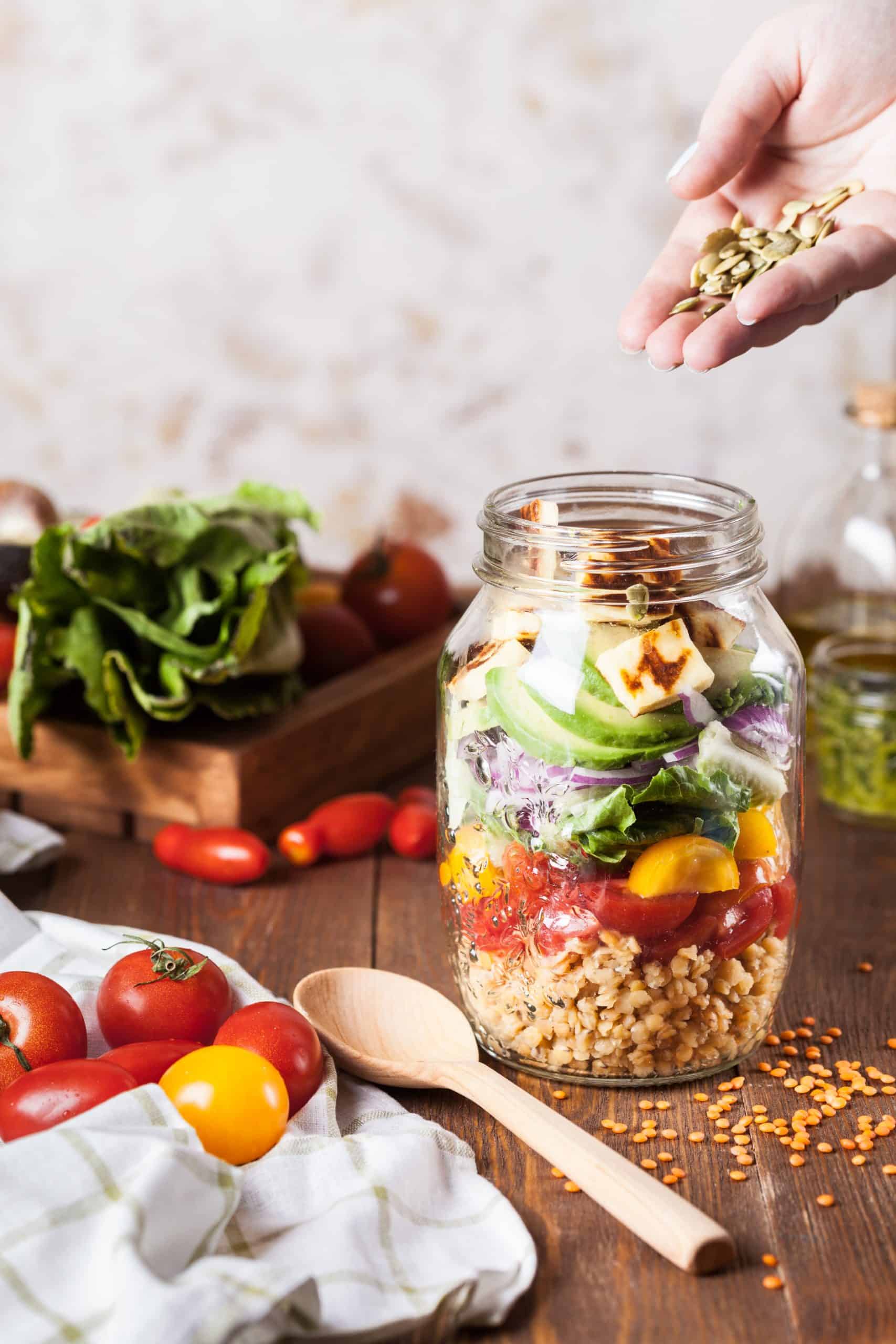
As well, you may sign up for virtual cooking classes. These ideas not only bring social interaction and fun to cooking, but they also help with recipe inspiration and getting outside your comfort zone. Choose a recipe together, buy your ingredients and have a catch-up session on Zoom or Google Meet while you cook.
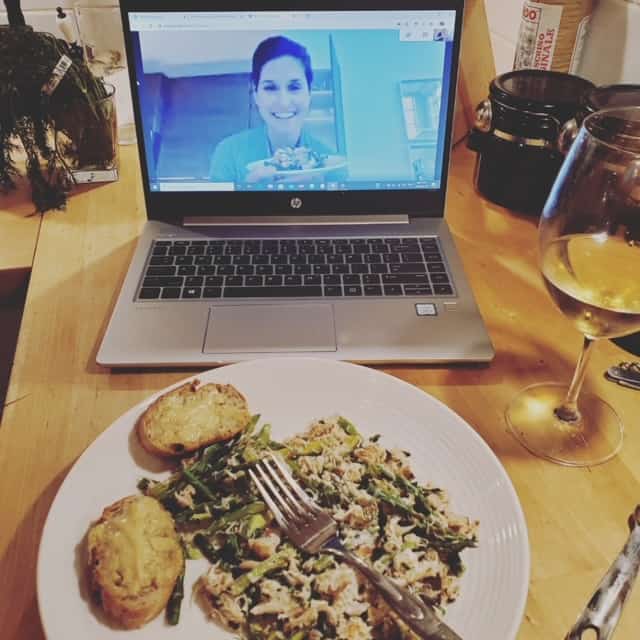
Habit Making: Make it fun! Ask yourself what would be fun or exciting for you? Do you want to have a virtual cooking night with your mom or sibling to make a family favourite recipe? Perhaps I’m craving a batch of Grandma’s meatballs and it would be fun to make while chatting with my mom. For planning, you might also choose to have a Podcast or phone call when out for a walk – by making it more fun, your healthy habit is more likely to stick!
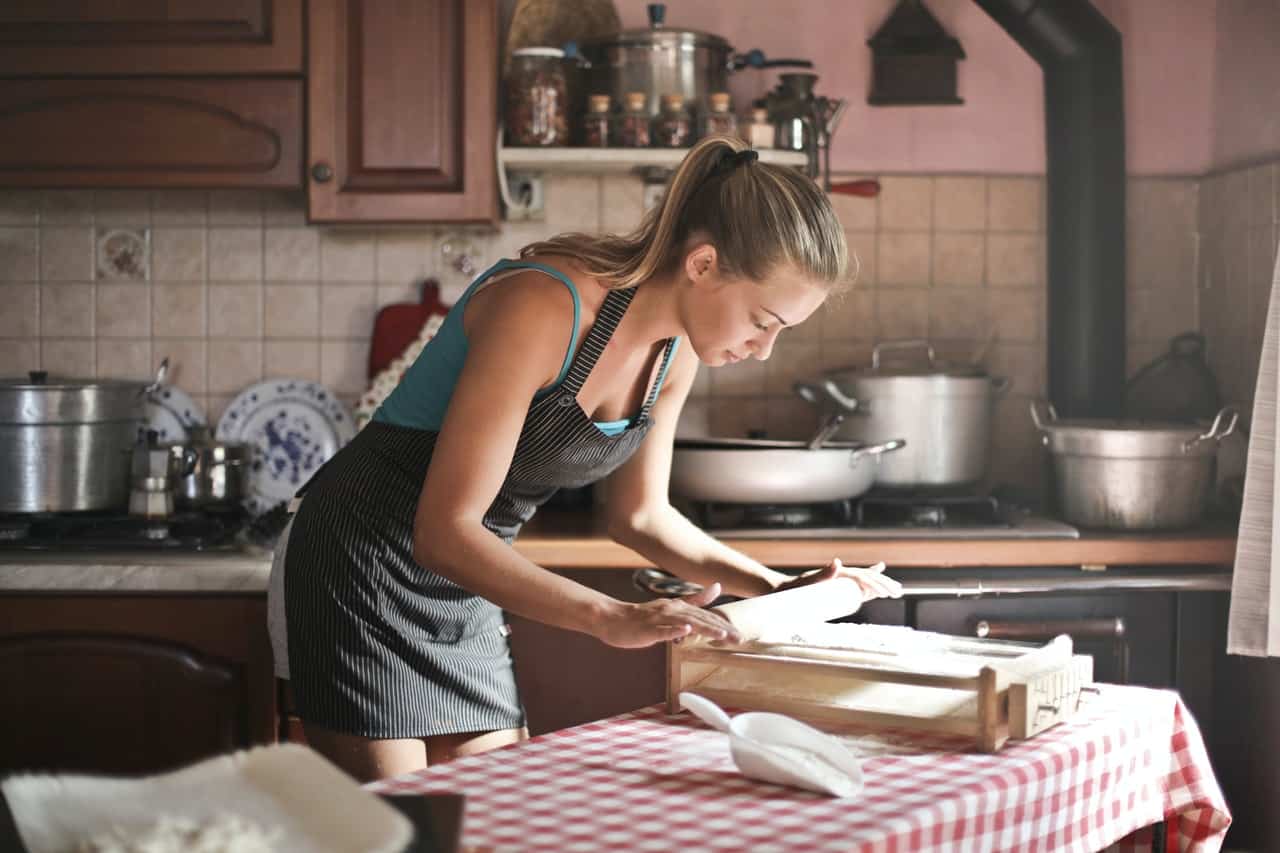
Another idea: Try experimenting with different spices to bring some Thai, Italian, Indian or Mexican flavours to your kitchen. You may also choose to use a Meal Theme for certain days of the week to remind you of a category to focus on. For example, Travel Tuesday could mean that you choose a place you’d like to travel to and then pick a popular dish to recreate at home.
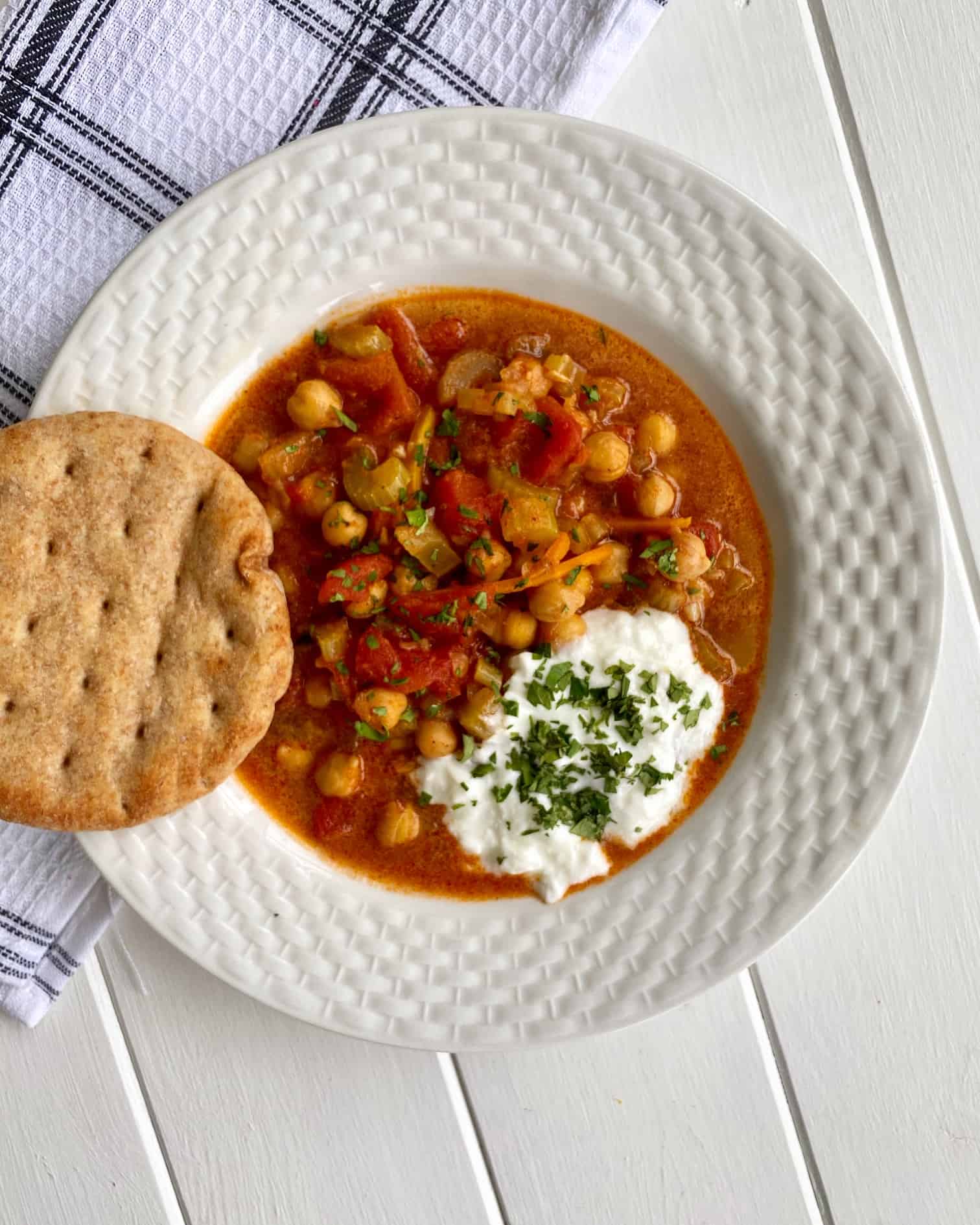
7. Getting your Vitamins
Lastly but very importantly in terms of healthy habits, the foods we eat and the vitamins we receive impact our immune system and our body’s ability to fight infection. Our foods also impact our mood, so here are some good-mood foods. Therefore, the focus of our nutrition on immune boosting and mental health is growing in popularity and a healthy habit to get into. Emphasizing colourful fruits and vegetables, healthy fats and lean proteins are all good ways to support our body’s natural defences. We also want to follow our public health guidelines.

Speak with a Dietitian
Speaking with a dietitian ensures you are getting what you need from your diet and your dietitian can determine if a vitamin or mineral supplement is also needed. In other words, your diet might be insufficient to meet your vitamin or mineral needs – for example vitamin D supports the immune system and we don’t get enough in our diets. I recommend clients take a vitamin D3 supplement, especially during winter months in Canada. Speak with your dietitian if you’re uncertain about dosage of specific vitamins or mineral supplements.
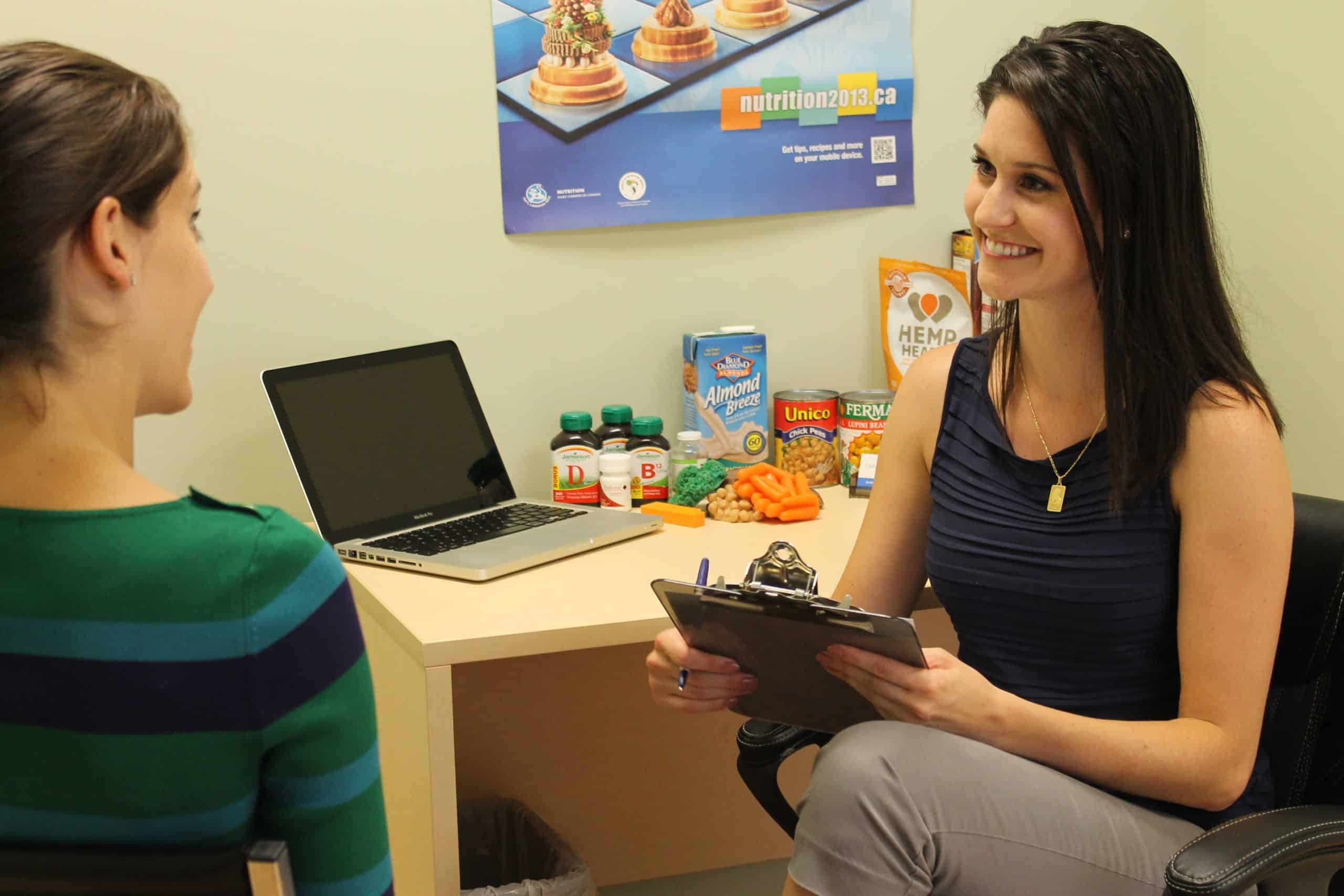
Healthy Habit Tip: Place your daily vitamins in a spot that reminds you to take them. By your toothbrush or computer could be ideas. We want to be consistent in our routine of taking vitamins needed.
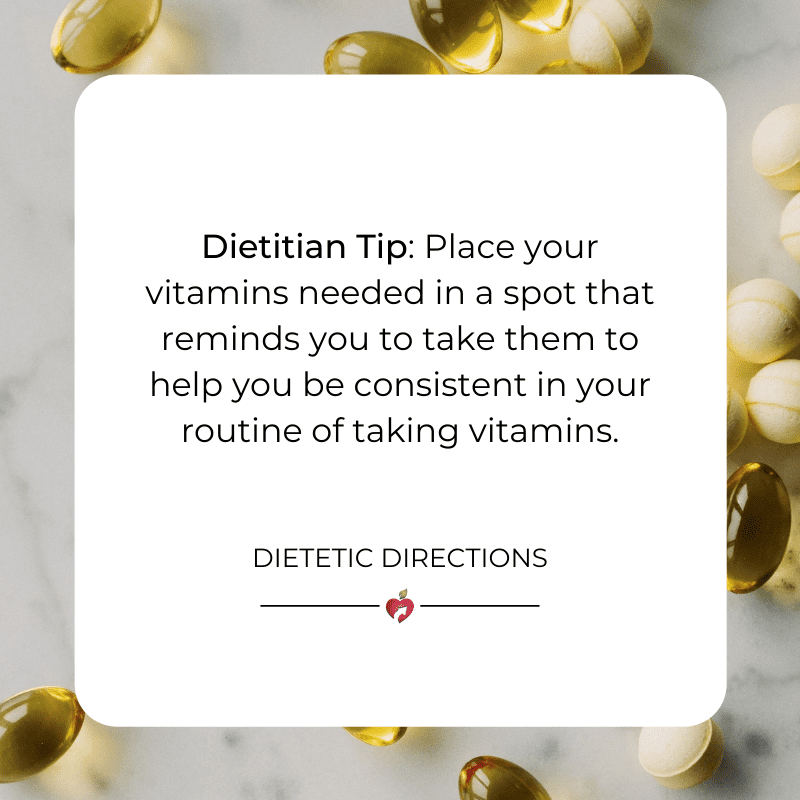
Be sure to read Five Scientifically Proven Ways to Boost Immunity blog for more details. Similarly, 3 Ways to Boost Mood with Food is also a helpful read!
Bottom Line
With intention, healthy habits can be a part of your New Year. You might choose to cook more often, get your kitchen organized, practice food budgeting, move your body more, batch-cook, bring fun back and emphasize getting your vitamins. You don’t have to do it all. These are just ideas to inspire you and take steps in a positive direction.

Additionally, kindness is a big part of coming together during a pandemic and a wonderful healthy habit to cultivate. Keep the importance of food and nutritious meals in mind when thinking of others. You might choose to make extra meals for a family facing a difficult time (health condition, new parents, grieving families). This gesture goes a long way. Doorstep drop-offs of your creations are popular and a surprise to the receiver.
Wishing you a happy and healthy New Year!



